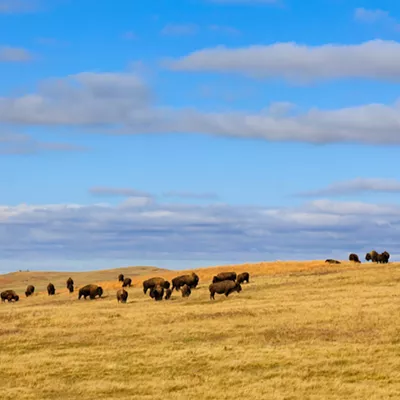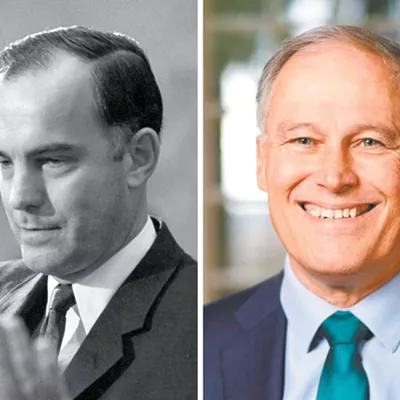For decades, Washington has had the most regressive tax system in the country, according to the nonprofit Institute on Taxation and Economic Policy. The state's poorest citizens have been paying a much higher percentage of their household income in taxes than the state's richest people, in part because the state relies heavily on sales tax for revenue and does not have an income tax.
In the Institute's January 2024 "Who Pays" report, which analyzes the tax systems in all 50 states, Washington's lowest 20% of earners paid 13.8% of their household income in taxes, while the top 1% of earners paid 4.1% of their household income in tax. In 2018, the Institute reported that the tax gap was even wider at 17.8% for the lowest earners and 3% for the highest earners.
In response to the imbalance, the state Legislature in 2021 created a 7% tax on capital gains — these include the sale of stocks, bonds and other capital assets — that exceed $250,000 annually. Passed into law with only Democrats in support, the capital gains tax was intended to make the state's tax system more progressive.
"The Legislature recognizes that levying this tax will have the additional effect of making material progress toward rebalancing the state's tax code," the state law reads.
Just three years after it became law, the capital gains tax could be in jeopardy as Initiative 2109 will ask Washington voters if they would like to repeal the excise tax.
The initiative is one of three brought forward by the political action committee Let's Go Washington that will appear on the upcoming Nov. 5 ballot. The committee, led by hedge fund manager Brian Heywood, also supports a fourth initiative on the ballot that would make the state's long-term care insurance program optional.
"This is a direct tax on innovators, small businesses and the tech industry," says Hallie Balch, communications director at Let's Go Washington.
While the law maintains an exemption for capital gains earned through retirement accounts, all residential and other property, and "family-owned small businesses," Balch argues that doesn't mean it won't affect small businesses.
"They can put all the exemptions they want, but that doesn't mean they will be followed," she says, pointing to agricultural exemptions in the state's Climate Commitment Act that weren't enforced.
Those working for the No on I-2109 campaign argue that the initiative would give a tax break to the wealthiest Washingtonians and remove vital funding for education and child care in the state.
Revenue from the capital gains tax is put into the state Education Legacy Trust Account, which helps fund preschools, child care, special education, and community and technical colleges throughout the state.
"Ninety-eight percent of us are never going to pay this tax, but it benefits families across the state," says Treasure Mackley, executive director of Invest in Washington Now, which is one of more than 150 organizations supporting the No on I-2109 campaign. "This will take away over $2.2 billion from education, early learning and child care if it is passed."
In 2023, Washington took in nearly $900 million in capital gains taxes from activity in 2022, according to the state Department of Revenue. Fewer than 4,000 people had to pay capital gains taxes for that year, and of those, nearly 84% lived in King County. Of the 105 tax returns in Spokane County required to be filed under the state law, 84 had to make a net payment to the state, totaling nearly $8 million.
DEFUNDING EDUCATION?
Washington's capital gains tax includes a clause dictating that the revenue will help fund child care and education in the state by depositing up to $500 million each year into the Education Legacy Trust Account.In the state's 2021-23 biennial budget, before revenue was collected from the capital gains tax, $28 million was dedicated to child care programs. That increased to $386 million for the 2023-25 biennial budget, Mackley says.
"This substantial investment is increasing access to child care and education for families all across the state," she says.
This increased funding helped create more than 1,200 child care and preschool slots in Spokane County during fiscal 2023, according to the Washington State Budget & Policy Center.
If the state receives more than the $500 million threshold in a year, the additional funds will go toward school construction projects. Earlier this year, two-thirds of the 21 school bonds proposed across the state failed, including all five proposed school bonds in Spokane County. Mackley says the capital gains tax is vital for these school districts.
"If I-2109 passes, it will take away the additional funding for school construction that communities across the state need, particularly in areas that haven't been able to pass a bond," Mackley says. "This would be taking away that lifesaver, to have kids learn in a safe environment."
However, Balch, with Let's Go Washington, says the state is already required to fully fund education, so if this initiative passes, it wouldn't strip funding from schools but would force the state to figure out how to reallocate funds.
While there are currently 171 school construction projects being funded by the capital gains tax, the fiscal impact statement prepared by the state's Office of Financial Management for I-2109 states that the tax would not provide any funds for school construction in the next five fiscal years, because it's not expected to bring in more than $500 million in any of those years.
'BACK-DOOR INCOME TAX'?
While the capital gains tax was passed in 2021, it couldn't go into effect right away because a Douglas County Superior Court ruled that the law was unconstitutional. Washington's constitution does not allow the state to implement an income tax, and the court deemed that the capital gains tax was indeed a type of income tax."We feel like this is a sneaky way for the majority party to enact a back-door income tax," Balch says. "According to every other state with a capital gains tax and even the dictionary, capital gains are a type of income."
Mackley, however, says this argument just isn't valid in Washington.
"This is just a scare tactic used by those who support I-2109," Mackley says. "The opposition has already tried that argument up to the Supreme Court and failed."
In March 2023, the Washington Supreme Court reversed the lower court's ruling, arguing that capital gains were technically an excise tax, and therefore the law was not unconstitutional. The ruling stands after the U.S. Supreme Court in January declined to hear an appeal on the case.
Regardless, Balch argues that the capital gains tax is a gateway to implementing a statewide income tax. Washington voters have opposed an income tax 10 times since 1934. (Voters did pass an income tax in 1932, but the state Supreme Court ruled against it.)
"They're already trying to change the threshold down to $15,000 so it will affect more Washingtonians," Balch says, referring to Senate Bill 5335, which failed to make it out of the Senate Health & Long Term Care Committee during the past two legislative sessions. "It didn't pass, but we all know Olympia is going to try to pass it again." ♦


























